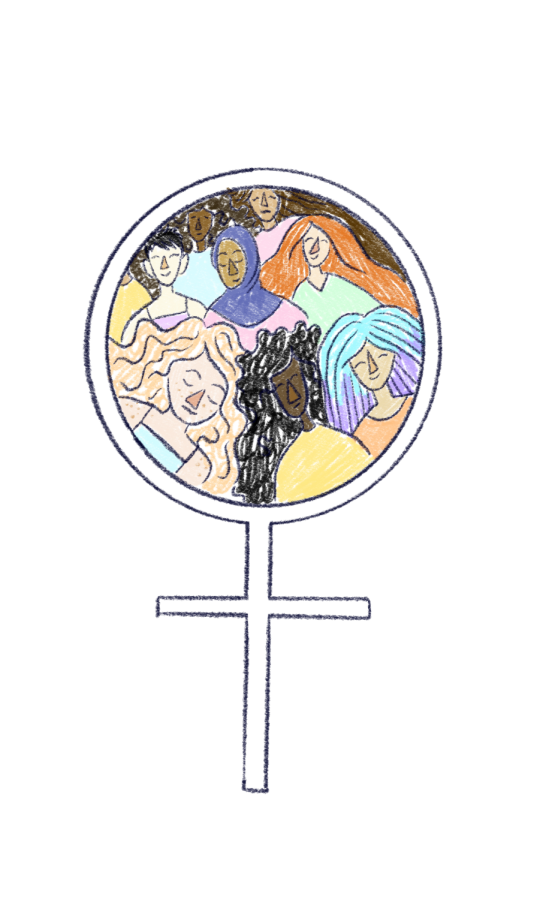The History Behind International Women’s Day
International Women’s Day is celebrated on March 8th every year.
March 30, 2020
What if there was a day in which women could come together and celebrate their social, economic, cultural, and political achievements? A day to celebrate justice, hope, and empathy, as well as create awareness through protests of gender parity?
International Women’s Day, which takes place on March 8th every year, was founded by women to bring attention to gender inequality and women’s rights. This is a time for women to reflect on their accomplishments, as well as what is still to be accomplished.
The first noted celebration of International Women’s Day was in New York City on March 19th in 1911, when 15,000 women gathered to protest long work hours, low pay, and the lack of voting rights. The call to action was honored and celebrated around the world, but it was Russia who established the date of March 8th, after a fight for suffrage in 1917.
In 1975, International Women’s Day was officially recognized by the United Nations, in a decade known as the “women’s decade,” which shared the same values and goals. Since then, the day has been used to both fight for women’s rights as well as celebrate their achievements.
Although it is recognized internationally, many people still don’t know about the day and don’t celebrate it. When Mr. Benjamin Cohen, a history teacher here at CRLS, was asked what he knew about the day, he responded, “I feel like I’ve definitely heard of it, and my knowledge stops right there … which I am not proud of.” Many other members of the CRLS community responded equivalently when asked the same question.
Even though the celebration is not commonly known, women worldwide celebrate their accomplishments, such as the right to vote or making an impact in politics, daily. Throughout history, tenacious women have been able to achieve equal rights in a variety of ways. Kaelyn Silva ’23 believes, “It’s empowering to be a woman and to see females evolve and their rights evolve.” Even though many issues relating to gender inequality still need to be addressed and solved, women’s rights have come a long way. The fight for equality exists for women every day of their lives—it didn’t end with gaining the right to vote.
For example, some school rules are more strictly enforced for girls rather than boys all over the country, and Cambridge is not unique in that respect. Nick Holleran ’23 responded, “I would definitely say in schools how I dress is a really important thing. … I feel like dress codes, in general, are targeted towards women whereas men have it a lot easier.” Many women are angered by the unfairness of people’s reactions when they wear more revealing clothing or something that may be considered inappropriate. Silva explained, “Like, no, I just want to look good. And it makes me mad because not everyone wants that type of attention; they just want to look good and feel good in their own skin.”
The ways society views women differently goes farther than just their clothing. Around the world, women are assumed to be more emotional than men, which can make it difficult for women to express emotion if they are trying to avoid a stereotype. When asked which assumptions about women she wished to change, Ms. Jennifer Sarmiento, former advisor for the feminism club at CRLS, responded, “The ‘hysteria’ in western culture and philosophy that women have been burdened with for thousands of years. That notion that emotion is somehow irrational when in truth those who suppress their emotions are often much scarier and more unpredictable.”
The fight against sexism is an integral part of many women’s daily lives. Ms. Alison Kellie, a math teacher at CRLS, explained her version of feminism, saying that it should not have to exist. “Yes, men and women have differences, but there is no reason why that should get in the way of anything. We shouldn’t have to rally and say, ‘Yes, women are strong!’ because you don’t see men doing that.” Feminism has driven great progress, both nationally and globally, working towards a day when it will not have to exist. International Human Rights Laws prohibit discrimination on the basis of sex and guarantee men and women equal cultural, economic, political, and social rights, which would not be a reality today without feminism.
For many people, a day to celebrate women and their achievements is necessary to remind women that they stand stronger together in their fight for a more equal world. As Mr. Cohen said, “Women are boss. Period.”










